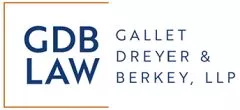When your neighbor knocks on your door and asks for access, there are a few preliminary steps that should be taken.
Take a stroll through New York City, and you're bound to see a dog walker wrangling a pack of mixed breeds as he passes by the 24-hour corner bodega. And on his way to pick up his Sunday morning bagel with cream cheese and lox, he will most definitely pass under, and meander around, a sidewalk shed. This often unassuming overhead protection, made up of scaffolding-like support legs topped with green plywood, is sprinkled throughout the city. This structure is often the tip of the iceberg of much more elaborate protective measures unseen to the distracted bystander and is the physical manifestation of an often long-winded negotiation culminating in the form of an Access License Agreement between neighbors.
Big City living comes with Big City problems of living on top of one another. Quite often, your neighbor may need to perform repairs to their building, whether they be emergency repairs, routine maintenance, or government-mandated repair work (i.e., Local Law 11 facade safety work). But in order to perform such work, access to your property is required to either simply protect your property from the work being performed on your neighbor's building or your neighbor needing to perform his repair work on your property. For example, your neighbor needs to drop a swing stage scaffold within your air space in order to perform work on his building from this platform. The other common occurrence when access is needed is in the context of your neighbor's construction and development of an entirely new building to the rear or side of your property.
When your neighbor knocks on your door and asks for access, there are a few preliminary steps that should be taken. First, contact an attorney immediately. What often begins as a friendly neighborly discussion and a handshake agreement can quickly turn into a heated lawsuit once the first crack in the wall appears or the first puncture of your roof membrane occurs.
Before commencing any negotiations, I would recommend asking the neighbor to deposit some amount of money in escrow while the agreement is being drafted. Depending upon the scope of the neighbor's planned work, you may also need to engage an engineer. These professionals come at a cost that should be covered by your neighbor. If you retain these professionals, carry on good faith negotiations, and start to incur fees, what happens when your neighbor abandons the project or revises his scope of work so as to remove the need for access? Without these monies being held in escrow, you would be responsible for these fees with no recourse against your neighbor.
Assuming we've reached an agreement regarding the amount of the escrow, the agreement should grant access for your neighbor's professionals to conduct a preliminary construction survey or "pre-con survey," as it is colloquially called. This survey creates a baseline of the condition of your property prior to your neighbor commencing his work. It's merely a snapshot in time but will benefit both parties in the event of claimed damage to your property. You can point to the survey and claim that the damage is new, having only developed since your neighbor's access, thereby holding the neighbor responsible for repairing such damage. Alternatively, your neighbor can claim that the damage was pre-existing, thereby disclaiming responsibility to repair such damage.
Each access agreement is very fact-specific and, in some instances, may require the installation of vibration or crack monitors, as well as optical sensors. These devices are designed to monitor the vertical and horizontal sway of a building and the effect any foundation work, such as pile driving, has on the building's structural stability.
Your neighbor is usually tasked with protecting the area on your property within twenty feet of the shared property line. Each area of your property falling within this protection zone needs to be analyzed. We touched upon a sidewalk shed earlier, but does the overhead protection need to expand to protect the roof (and the mechanicals and skylights found on the roof), roof decks, terraces, balconies, patios, backyards, courtyards, and alleyways? Will these areas be closed-off as a controlled access zone throughout the project, or will they be open when no work is being performed above these areas? Will your windows and fire escapes need to be protected and portions of your exposed foundation waterproofed? How are these areas being protected—what specific materials, means, and measures? How are the protections being brought to and removed from your property—through your building or dropped from your neighbor's building? What if you need to remove the protection to perform your own repairs? These are all questions that need to be answered when drafting the scope of the proposed protection.
Insurance and indemnification provisions are standard in any access agreement. Your neighbor's general contractors and subcontractors should maintain adequate coverage throughout the project, naming you as an additional named insured. Additionally, you should be indemnified by your neighbor and their general contractors and subcontractors from any claims arising from the access granted, the protection installed, and the work itself.
The biggest point of contention in any access agreement revolves around the amount of the license fee paid by the neighbor. The neighbor is expected to pay you a fee for your troubles and inconvenience. This is especially important if the neighbor's protection interferes with your tenants' use and enjoyment of their rented space, as a rent reduction request is not uncommon. The law does not provide any specific formula for these license fees, and courts will analyze each case on its own merits. However, the amount should be reasonable and have a direct relationship to the level and length of your neighbor's intrusion and interference with your use and enjoyment of your property. The longer and more involved the intrusion and interference, the more you would be justified in asking for a larger license fee. In addition to a license fee, you are entitled to be reimbursed for your professionals' fees. But once again, these fees must be reasonable. The payment of license fees and the reimbursement of professional fees are meant to place you in the same position had access not been granted. They should not be used as an opportunity to profit from your neighbor's requested access.
Depending on how your building and your neighbor's building are situated, you may need to request access from your neighbor in the future. This possibility should inform how strong of a position you should take when negotiating with your neighbor, as it may come back to haunt you in the future. Accordingly, it is often advantageous to ask for reciprocal language in your agreement to preempt your neighbor from acting unreasonably when it comes to their own asks sometime in the future.
When negotiating an access agreement, please be mindful that if you take an unreasonable position, the neighbor could break off negotiations and commence an: "Article 881 Proceeding," which authority is found in Article 881 of the New York Real Property Actions and Proceedings Law. The law provides:
"When an owner or lessee seeks to make improvements or repairs to real property so situated that such improvements or repairs cannot be made by the owner or lessee without entering the premises of an adjoining owner or his lessee, and permission so to enter has been refused, the owner or lessee seeking to make such improvements or repairs may commence a special proceeding for a license so to enter pursuant to article four of the civil practice law and rules.
The petition and affidavits, if any, shall state the facts making such entry necessary and the date or dates on which entry is sought. Such license shall be granted by the court in an appropriate case upon such terms as justice requires. The licensee shall be liable to the adjoining owner or his lessee for actual damages occurring as a result of the entry."
Commencing and defending a lawsuit will take time and money from both sides and perhaps, your neighbor will be ordered to reimburse you for legal fees incurred in the defense of an Article 881 action. But what does the phrase "upon such terms as justice requires" actually mean? It's not a defined term with any guidelines or parameters. The court has a lot of latitude in reaching its own decision, and because each case is so fact specific, it is hard to predict how a court would rule. In my experience, you're never going to get a sweeter deal than negotiating with your neighbor without court involvement. However, that will require you to act reasonably so as to prevent your neighbor from being left with no other alternative than turning to the court.
Your neighbor will try to depict the access agreement as a simple request among friends. But to the contrary, the access agreement tackles a very complicated arrangement that addresses not only the physical protection of your building but also seeks to protect you from risk, loss, and liability. It's imperative to make sure the agreement adequately protects your interests and limits your exposure. Big City Living requires a Big City access agreement.
The content of this article is intended to provide a general guide to the subject matter. Specialist advice should be sought about your specific circumstances.


